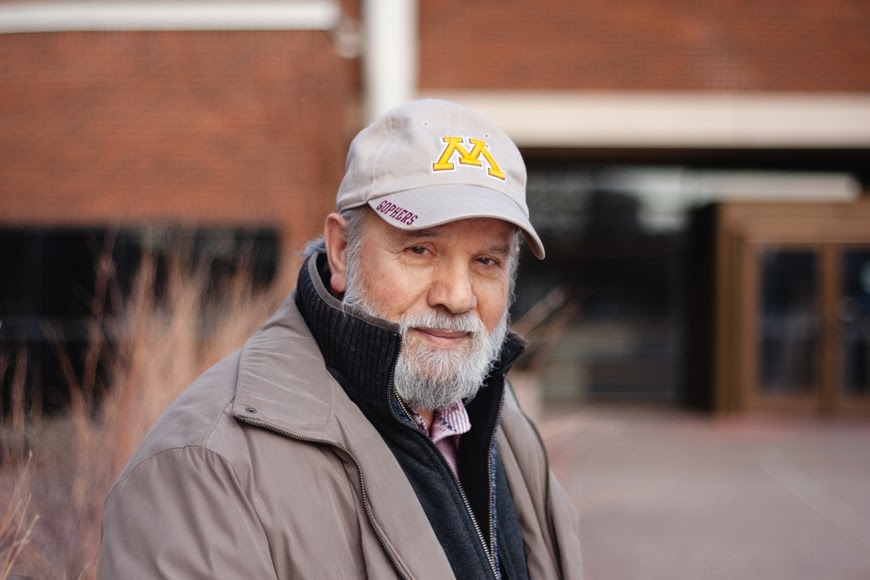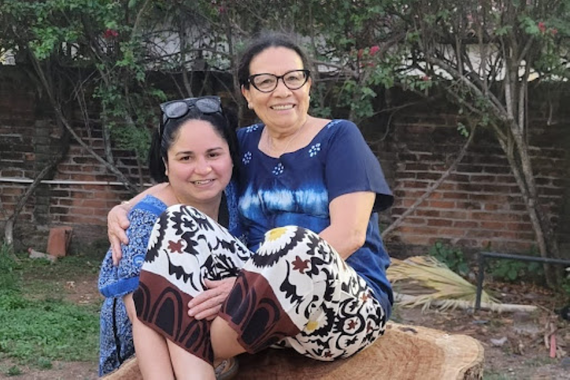Iraj Bashiri’s Firsthand Histories of the World
Professor Iraj Bashiri is one of the United States’ most distinguished scholars of Central Asian studies. Bashiri has spent the entirety of his career collecting firsthand cultural and linguistic knowledge of Central Asian countries in order to more accurately depict the complicated histories of that region, with a particular focus on the 1992 civil war in Tajikistan.
With his retirement in January 2020, Bashiri culminated all of his past travels to inform his last course, Cultures of the Silk Road, an apex of research into the people and histories of such an important region of the world.
Finding His Place
Bashiri is no stranger to interdisciplinary thinking or travel. As someone who received a mathematics degree in Iran, a bachelor’s degree in English language and literature, and a doctorate in Iranian linguistics from the University of Michigan, he truly understands the value of global and interdisciplinary learning.
Bashiri found that his backgrounds in math, literature, and linguistics complement each other. “I started in mathematics which puts everything in categories,” he says. “Then, I found out that linguistics is exactly the same thing: you find a phoneme, a morpheme, a phrase, a sentence, and so on. My mathematics taught me categorization of structures, which I also use in analyzing literature.”
In 1972, Bashiri learned of a teaching opportunity at the University of Minnesota from a colleague who was leaving Minnesota for a job in Tehran. As fate would have it, Bashiri ended up receiving that visiting assistant professor position and has since worked in numerous roles throughout the University.
His various positions at the University reflect the wide scope of his interdisciplinary studies. “I've been in many departments—[history] is actually my last department. I was in Russian and East European studies as professor and as director, and I was the director of the Institute of Linguistics.”
He has also taught an equally broad range of topics, from English literature to the Turkish and Persian languages. “I have gone through everything that is offered, so to speak, and everything there is to do. And I have enjoyed it.” Bashiri is an educator through and through.
Contextualizing Culture
Bashiri has an expansive breadth of knowledge of Central Asian ethnic groups, informed by his direct study of the region’s languages and dialects. This knowledge extends beyond Iran and into countries such as Kazakhstan, Kyrgyzstan, Tajikistan, and Uzbekistan, to name a few. Bashiri has, over the course of the last thirty years, traveled through these countries and, with his research, revealed the rich cultures that persist to this day. “I wanted to do it hands-on and not just sit here behind some desk and pontificate on what went on, but see it,” he explains.
To research the impact of the Soviet Union on Islamic cultures, Bashiri met with various groups from the region such as the Tajik people. While he was a faculty member at the University of Minnesota, Bashiri lived in Tajikistan for a year during the civil war that exploded after oppositionists disagreed with the newly formed, Russian-backed government. Food and supplies grew increasingly scarce until Bashiri and his wife were forced to seek refuge with another family. They were at times without basic necessities like security and access to food and water, but they were taken in as guests by the Tajik citizens and treated as such.
This experience led Bashiri to a greater understanding of wartime culture within Tajikistan, “In the first phase of the war I understood how things can get difficult and you can manage them. In the second phase I found out how they live under the circumstances by helping each other out community-wise, family-wise—the Soviets tried very hard to break them up as communities, as families, and that didn't work.”
Bashiri has recently published a book entitled The History of the Civil War in Tajikistan, which catalogs the events of the war from the Tajik perspective, drawing from history volumes and his own lived experiences.
The Silk Road & Future Plans
All of Bashiri’s research has led up to the course called Cultures of the Silk Road, a course that he has taught for many years. It is easy to compile a history for a country or region without ever visiting and understanding the intricacies of them. To travel through the countries and meet the people who lived the histories offers a more comprehensive and truthful representation of what transpired. That is what Bashiri has gained in meeting with real people, amassing a narrative of community and perseverance from a sample of resilient and diverse cultures.
In retirement, Bashiri plans to continue writing, as it has been a passion since his early beginnings in Iran. In a closing meditation, Bashiri offers a suggestion to future students of language and cultures: “My advice is to learn the languages and to use them in context, and to pursue a particular topic—whatever that might be. Then, home in on what you want to accomplish and pursue it diligently.”
This story was written by an undergraduate student in Backpack. Meet the team.



